People
Leadership
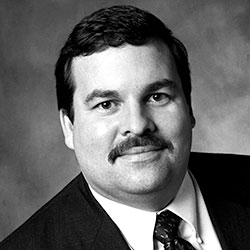
William K. Hallman
Professor/Chair
hallman@sebs.rutgers.edu
Science Communication Interest: Research, Education, and Outreach.
Research Interest: Risk perception and risk communication concerning controversial issues related to food, technology, health, and the environment.
Science Communication Activities: I teach 11:374:401 – Risk, Health, and Safety. I am a member of the Standing Committee on Advancing Science Communication Research and Practice, of the National Academies of Science, Engineering, and Medicine, and a member of the Advisory Committee for the Climate Communications Initiative, also of the National Academies of Science, Engineering, and Medicine. I also teach workshops on risk communication related to food safety at the Joint Institute for Food and Applied Nutrition (JIFSAN) of the US FDA and the University of Maryland.
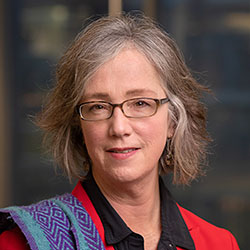
Mary Nucci
Research Assistant Professor
mnucci@sebs.rutgers.edu
Research Interest: My research and teaching are all concerned with science communication issues: pedagogy in the college classroom, public representations and perceptions of science, and science communication and learning in informal science institutions.
Science Communication Activities: SEBS Science Cafe; Alternative Science Careers program; Courses: 11:374:103 Introduction to science communication, 11:374:108 Processes in human ecology, 11:374:225 Environment in society and mass media, 11:374:226 Health in society and mass media, 11:374:227 Agriculture in society and mass media, 11:374:307 Experiencing sustainability in action, 11:374: 325 Environmental communication, 11:374:435 Advanced communication in the sciences, 01:119:409 Honors Communication in Biology, 16:718:560 Communicating science
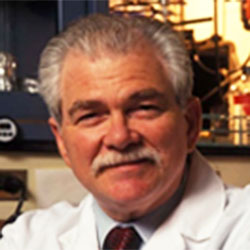
Nicholas M. Ponzio
Professor
ponzio@rutgers.edu
Science Communication Interest: Education, Research, and Outreach.
Research Interest: My biomedical research has involved investigating the etiology and immunotherapy of B cell lymphomas, the therapeutic use of stem cells from human umbilical cord blood and other sources, and immunological aspects of Autism Spectrum Disorders.
Science Communication Activities: Funding from the Burroughs Wellcome Fund allowed me to recruit faculty from several schools of Rutgers to develop and offer two graduate-level courses, Communicating Science (6718 56001 S01) for Ph.D. candidates and Communicating Science & Medicine (GSND 5330 Q01) for Masters students aspiring to enter medical or dental school to help them improve their ability to communicate their science accurately, clearly and understandably to diverse audiences. We also transformed the content from these courses into a 4-part workshop series for Rutgers postdoctoral fellows and faculty and for outreach to other groups of scientists.
Affiliates
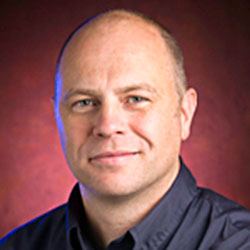
Mark Aakhus
Professor & Associate Dean for Research
aakhus@rutgers.edu
Science Communication Interest: Communication across expert fields; Designing communication to mediate conflict and facilitate collaboration; Practices for the co-creation of health, wellness, and democracy
Research Interest: intentional and emergent design of institutions for communication; public argument and deliberative processes; participatory design and decision-making digital infrastructure
Science Communication Activities: European Network for Argumentation and Public Policy Analysis (COST Action CA17132 – APPLY: https://publicpolicyargument.eu/structure/core-group/), Scientific Advisor, Management Committee Observer; Community Design for Health and Wellness (https://communitydesign.rutgers.edu/), Co-Director; 17:194:510 – Communication & Society (Corporate social responsibility and accountability); 17:194:541 – Organizational Decision Making; 17:192:422 – Communication and Facilitation
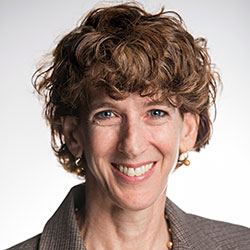
Janet Alder
Assistant Dean and Associate Professor
janet.alder@rutgers.edu
Science Communication Interest: Education and Outreach
Research Interest: Exploring the biology underlying traumatic brain injury and mood disorders and identifying novel treatment approaches
Science Communication Activities: Communicating Science class for Ph.D. students, iJOBS workshops for Ph.D. students and postdocs, Eagleton Science and Policy Workshops
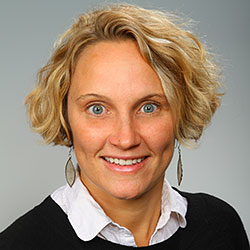
Lisa Auermuller
Assistant Manager
auermull@marine.rutgers.edu
Science Communication Interest: Lisa’s role includes assessing the needs of coastal decision-makers and assembling training opportunities through JC NERR’s Coastal Training Program. These programs are designed to better inform decision-makers through the use of science-based applied research, visualization tools, and best practices. Most recently, Lisa’s primary areas of interest have been coastal community vulnerability and resilience related to current and future coastal hazards. Lisa has worked with various partners and stakeholders to develop tools and protocols to help communities understand their risks, plan for them, and put resiliency, mitigation, and adaptation measures into place. Lisa’s work combines natural and social science aspects of the coastal decision-making process.
Research Interest: Science communications is my full-time career.
Science Communication Activities: Communicating Science with Decision Makers Spring Graduate Course Resilience at the Shore 10-Day Field Course Jacques Cousteau National Estuarine Research Reserve – www.jcnerr.org
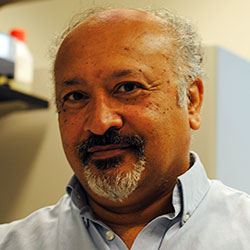
Debashish Bhattacharya
Distinguished Professor
d.bhattacharya@rutgers.edu
Science Communication Interest: Research, education, and K12 outreach as part of funded projects
Research Interest: Genomics, bioinformatics, and evolutionary research
Science Communication Activities: Professional Science Writing and Communication (167:12:561)
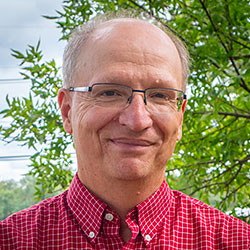
Anthony J. Broccoli
Professor
broccoli@envsci.rutgers.edu
Science Communication Interest: Education and outreach on communicating climate science
Research Interest: Climate dynamics and climate modeling
Science Communication Activities: I give frequent public talks on climate change, and I have participated in workshops on communicating climate science.
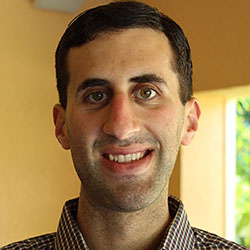
Brian Canter
PhD Student
brian.canter@rutgers.edu
Science Communication Interest: As a graduate student, I have noticed that the public broadly supports scientific research yet feels disconnected from researchers and institutions. My questions surrounding science communication are twofold: 1. How can scientists increase their visibility? 2. How can scientists increase trust with the public?
Research Interest: My research examines how radiation can be used to eliminate breast cancer cells that have metastasized to bone. I explore how a bone-seeking drug that emits alpha particle radiation affects disseminated tumors and bone cells. Specifically, I hope to understand better the intercellular communication between and among these two cell populations.
Science Communication Activities: Along with Emily Atieh, I am co-president of Science Policy and Advocacy at Rutgers (SPAR). SPAR is a student-run organization that educates early career scientists at Rutgers about government and policy. In addition, SPAR highlights the careers in science policy available to Ph.D. students and the skills needed for those positions. I also attended the American Association for the Advancement of Science’s Catalyzing Advocacy in Science and Engineering workshop in 2018. Along with three other attendees, I encouraged other scientists to engage in science policy through a blog post published on The Bridge by the American Geophysical Union titled The Elephant in the Lab: Five Sustainable Ways to Engage in Science Policy. I have also contributed to the Rutgers iJOBS blog with a post highlighting the need and value of SPAR. Furthermore, I serve on the Scholars in Training (SIT) Committee of the Radiation Research Society. For the monthly newsletter, I write a section discussing current science-related happenings in government and provide action items for early career scientists.

Anne Carr-Schmid
Assistant Professor
schmid@dls.rutgers.edu
Science Communication Interest: Undergraduate Curriculum Development and Career Planning.
Research Interest:
Science Communication Activities: Courses- Honors Communication in Biology (01:119:410), Career Exploration in Arts and Sciences -Medicine and Life Sciences/Biology (01:090:210).
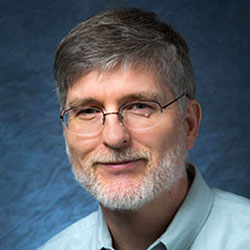
Clark Chinn
Professor, Associate Dean(GSE)
clarkchinn@gmail.com
Science Communication Interest: I’m especially interested in education promoting a grasp of scientific and social scientific evidence in K-12 and higher education.
Research Interest: Research, education, and outreach are related to improving reasoning/thinking in this soc-called post-truth world. With my colleagues, I have worked both on conceptualizing what good reasoning is (and therefore what the goals of education should be) as well as on how to design learning environments that advance epistemic performance (in groups and communities as well as individually. My focus to date has been especially on K-12 science education.
Science Communication Activities: Doctoral courses on reasoning/education to promote reasoning.
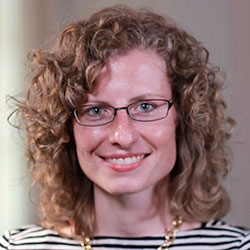
Cara Cuite
Assistant Extension Specialist
cuite@aesop.rutgers.edu
Science Communication Interest: Research and Outreach
Research Interest: Food- and weather-related risk communication
Science Communication Activities:
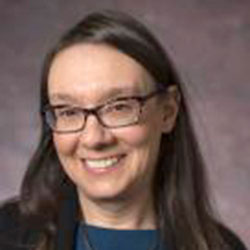
Teresa M. Delcorso-Ellmann
Assistant Dean
teresa.delcorso@rutgers.edu
Science Communication Interest:
Research Interest:
Science Communication Activities: Director of GradFund, the School of Graduate Studies, support office to assist graduate students with writing competitive grant and fellowship applications.
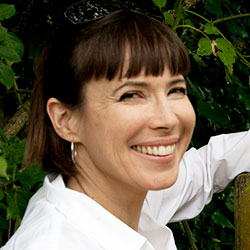
Elizabeth Demaray
Associate Professor
demaray@rutgers.edu
Science Communication Interest: Art/Sci Collaboration, Art and Technology, Eco-Art, Bioart
Research Interest: Design of the Non-Human, Trans-Species Interaction, AI, Anthropocene Issues
Science Communication Activities: Head of Intermedia concentration, RU-C, which offers classes in programable media, physical competing, bio art, eco-art, sustainability, and new media. Curator, Leonardo Art Science Evening Rendezvous (LASER) at the Zimmerli Art Museum. Advisor in the Art and Artificial Intelligence Lab at RU-NB.

Anna Dulencin
Sr. Program Coordinator – Science and Politics Initiative
anna.dulencin@eagleton.rutgers.edu
Science Communication Interest: Use of science communication at the intersection of science, technology, and politics.
Research Interest: The Eagleton Science and Politics Initiative explores how science, technology, and politics intersect; the political systems that connect them; and how deeper understanding and clearer communication within and across these disciplines can benefit policymakers, scientists, and the larger public.
Science Communication Activities: Science and Politics Workshop Science and Politics Fellowship
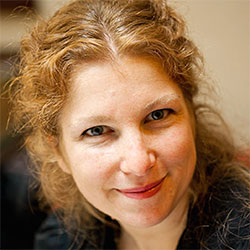
Ravit Golan Duncan
Associate Professor
ravit.duncan@gse.rutgers.edu
Science Communication Interest: My interests lie in the outreach and education of communicated science research. How do lay individuals or K-16 students reason with evidence? And how can we better craft evidence report to support such reasoning? While I do not have expertise in communications research per se, the products of the communication (written or oral reports) are the input of interest in my research in learning sciences.
Research Interest: Specifically, I study how students evaluate evidence quality when evidence is presented as popular science or adapted primary literature. As well as how they coordinate such evidence with competing claims/explanations they are considering.
Science Communication Activities: I teach methods courses for pre-service teachers, and we spend a lot of time designing educational materials that feature different forms and qualities of evidence. A core activity of creating evidence for students is to adapt primary literature (i.e., science articles) so students can understand and evaluate them.
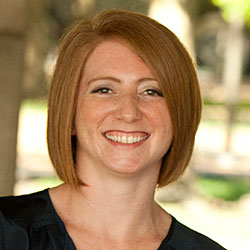
Karen Edelblum
Assistant Professor
karen.edelblum@rutgers.edu
Science Communication Interest: Education and Outreach to patient populations
Research Interest: My research interests focus on understanding the role of gamma delta intraepithelial lymphocytes (IEL) and their interactions with the intestinal epithelium in regulating mucosal innate immunity. We use in vitro and in vivo models in conjunction with state-of-the-art imaging techniques to identify how gamma delta IEL motility can potentially treat inflammatory bowel disease.
Science Communication Activities: Grantwriting course for Ph.D. students at NJMS.
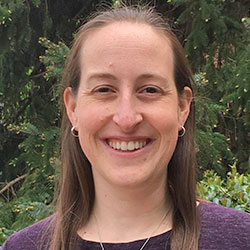
Mary Emenike
Assistant Professor of Professional Practice
mary.emenike@rutgers.edu
Science Communication Interest: Research and Education
Research Interest: Development of academic peer leaders’ content knowledge, pedagogical knowledge, leadership practices, and communication skills; faculty development programming for pedagogy and STEM-education research; digital badges in science and engineering laboratory courses; students’ experiences in introductory Computer Science courses, as well as the impacts of auto-grading systems in introductory CS courses on different subsets of students
Science Communication Activities: Assessment and research, some programming (in the form of interactive workshops) for undergraduate, academic peer leaders (e.g., tutors, learning assistants, study group leaders)
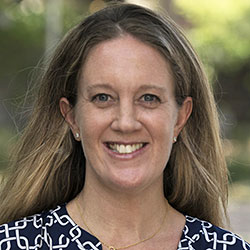
Lauren Feldman
Associate Professor
lauren.feldman@rutgers.edu
Science Communication Interest: Research and Teaching
Research Interest: My science communication research primarily focuses on media coverage of climate change and its influence on public opinion and behavior. I also conduct research on media and politics, particularly related to the effects of partisan media and the intersections of politics and entertainment.
Science Communication Activities: I teach an undergraduate course called ”Media, Science, and Public Engagement,” and a Master’s level course called ”Media, Science, and Society”
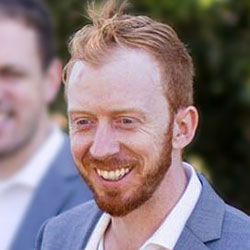
Nathan Fried
Assistant Professor
nate.t.fried@gmail.com
Science Communication Interest: Research, Education, Outreach
Research Interest: Exploring the genetic and neural mechanisms behind the intersection of sleep and pain to find new therapeutic targets that will decrease our reliance on opioids.
Science Communication Activities: Local science talks, science journalism, developing science blog for a science writing course.
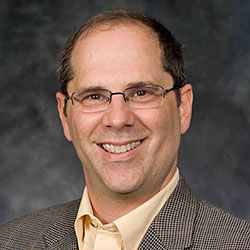
Gary Heiman
Associate Professor
heiman@dls.rutgers.edu
Science Communication Interest: Education
Research Interest: Genetic Epidemiology of Neuropsychiatric Disorders
Science Communication Activities: Course- Effective Communications Skills in Genetics (01:447:430)
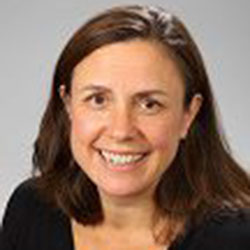
Jeanne Herb
Executive Director; Environmental Analysis & Communications Group
jherb@ejb.rutgers.edu
Science Communication Interest: Outreach Applying evidence to practice Engaging diverse stakeholders and decision-makers
Research Interest: Engaging underrepresented populations Communicating science to lead to evidence-based policy outcomes
Science Communication Activities: Co-instructor: Communicating Science with Decision-makers
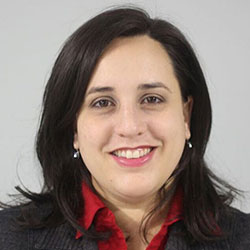
Patricia Irizarry
Director /Co-Director
pairiba@sas.rutgers.edu
Science Communication Interest: Interested in student development as a science communicator at the graduate and undergraduate levels. Special interest in informal education and diverse learning environments like museums, mobile labs, and STEAM Centers.
Research Interest: I am interested in fostering inclusive and diverse environments on campus. When not working with outreach programs, I serve as the coordinator for the NIH-funded Initiative for Maximizing Student Development (IMSD) to engage graduate and undergraduate students from underrepresented backgrounds in the biomedical sciences career paths.
Science Communication Activities: Guest lecturer, Rutgers Science Explorer graduate student training, Rutgers Geology Museum undergraduate tour guide training, and Math and Science Learning Center tours. Active in social media.
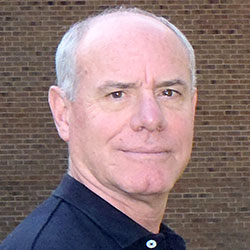
Henry John-Alder
Professor
Henry.John-Alder@Rutgers.edu
Science Communication Interest: I have no direct involvement in communication, but I think an effective dialogue between the academy and the rest of society is vital for the success of research (its rationale and outcomes) and education (its content and value). People have to know the importance and relevance of what we do.
Research Interest: I am an evolutionary physiologist, and I am specifically interested in the evolution of mechanisms that regulate gender-specific gene expression and the development of gender-specific organismal phenotypes. I am particularly interested in evolutionary reversals in the role of testosterone as a growth-regulatory signal, causing an increase in the expression of growth-regulating genes in some species and a decrease in others.
Science Communication Activities: Other than teaching, publications, and presentations at scientific conferences, I have no formal communication activities.
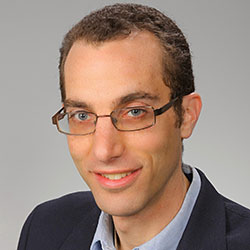
Robert Kopp
Professor
Robert.Kopp@Rutgers.edu
Science Communication Interest: Robert Kopp is an active climate science communicator who has repeatedly appeared on public radio and podcasts and in venues such as The New York Times and engages heavily in policy outreach. He is also a leader of the Rutgers Institute of Earth, Ocean, and Atmospheric Sciences’ Coastal Climate Risk and Resilience initiative, which trains graduate students to communicate across disciplinary barriers and with stakeholders about climate change and coastal resilience.
Research Interest: Robert Kopp’s research focuses on past and future sea level change, the interactions between physical climate change and the economy, and using climate risk information in decision-making.
Science Communication Activities: Coastal Climate Risk and Resilience Initiative (C2R2)
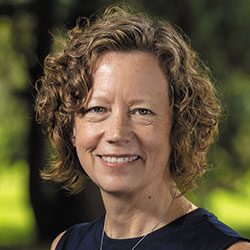
Laura Lawson
Executive Dean, School of Environmental and Biological Sciences
ljlawson@sebs.rutgers.edu
Science Communication Interest: education and outreach
Research Interest: urban agriculture, urban parks and open space, public engagement and participation in design and planning, environmental justice
Science Communication Activities:
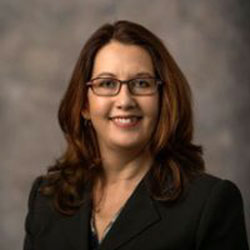
Jennifer Lenahan Cleary
Director, Career Explorations in Arts and Sciences
jcleary@rutgers.edu
Science Communication Interest: Personal: I love science and enjoy learning about advances in various disciplines.
Professional: I help students consider career options, including those in and around science. Communicating scientific information to both expert and non-expert audiences is a key skill for entering many science-related jobs, so I am curious to meet people from various occupations who communicate about science in various ways so I can better acquaint students with the importance and varied applications of science communication skills.
Research Interest: See professional interests above. If I had to pose it as a research question, it might be, ”What are the most important skills that students can develop to become effective science communicators in various professional, community, and personal contexts?”
Science Communication Activities: Career Explorations in Arts and Sciences 1.5 credit course, including a section focused on Medicine, bio and life sciences. The course discusses the importance of developing oral and written communication skills to succeed in science and non-science jobs (and community life!). Some practice with active listening, speaking, and writing about science interests and skills is included in the class, especially in regards to summarizing skills for employers in the job search process and early career experiences.
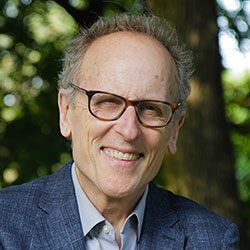
Thomas Lennon
Director, Documentary Film Lab
TL625@mgsa.rutgers.edu
Science Communication Interest: Outreach.
Research Interest: Documentary Film.
Science Communication Activities: Science subjects as short films–want to do more projects and more ambitious projects.
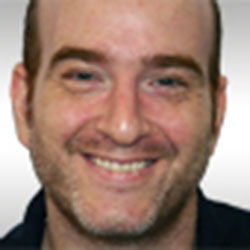
William Magrino
Director, Business & Technical Writing
william.magrino@gmail.com
Science Communication Interest: Research and Written Communication
Research Interest: Educational Technology and Social Meid
Science Communication Activities: Technical Writing, Science Writing, Proposal Writing, Business &Technical Writing Minor
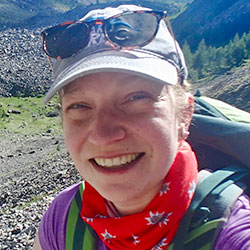
Lauren Neitzke Adamo
Director, Assistant Teaching Professor
lneitzke@eps.rutgers.edu
Science Communication Interest: Education and outreach, teaching undergraduate and graduate students best practices
Research Interest: Geoscience Education practices, geology, and paleoceanography, Remote sensing with drones
Science Communication Activities: ”Talk Science to Me” honors college seminar, Aresty research position, outreach programs at Rutgers Geology Museum, PolarTREC 2018 educator
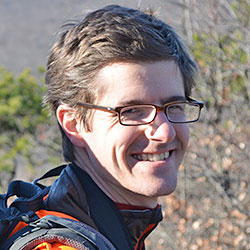
Malin Pinsky
Associate Professor
malin.pinsky@rutgers.edu
Science Communication Interest: Communicating research results and implications to journalists and policymakers. Training graduate students, postdocs, and faculty in more effective science communication.
Research Interest: The ecological and evolutionary impacts of climate change in the ocean.
Science Communication Activities: Organized winter 2018 COMPASS science communication workshop and events. Communicate frequently with journalists and policymakers in Washington, DC, about climate change, the ocean, and fisheries.
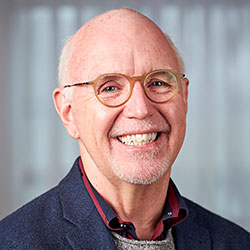
Mark Gregory Robson
Board of Governors Distinguished Service Professor
robson@sebs.rutgers.edu
Science Communication Interest: The risks associated with agriculture and food production.
Research Interest: How do you explain risk and risk assessment? How do you measure the magnitude of risk, and how do you balance it with competing risks?
Science Communication Activities: Classes, workshops, and scholarship
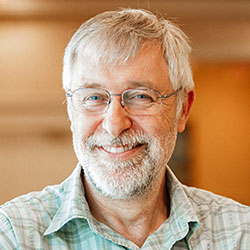
Don Schaffner
Distinguished Professor and Extension Specialist
don.schaffner@rutgers.edu
Science Communication Interest: Outreach
Research Interest: microbiology and foodborne disease
Science Communication Activities: News media interviews and Food Safety Talk podcast
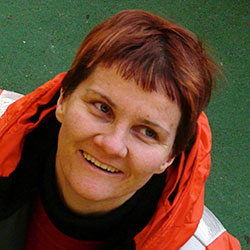
Silke Severmann
Associate Professor
silke@marine.rutgers.edu
Science Communication Interest: I am interested in outreach as part of the research that I am doing. Further, I believe that science communication is one of the most important transferable skills we can teach our students.
Research Interest: I am a chemical oceanographer stuck between a rock and a wet place; I study the mud that accumulates on the bottom of the ocean. This mud records the current events in the ocean: how it exchanges greenhouse gas with the atmosphere, who’s growing in it, and what effect we humans have on the ocean. This mud will eventually become the geological record, i.e., the history books of Earth. But before this can happen, several chemical and physical changes take place that causes the record to become distorted, compressed, or otherwise modified. I study those changes to ensure we can correctly read and interpret the geological archive.
Science Communication Activities: I have been teaching a course at Rutgers on professional science writing and communication on and off since 2009. When we first started, the focus was mostly on science writing, but over the last few years, the importance of science communication, especially outside academia, has really come to the forefront. We teach our students how to communicate with different audiences using a range of media effectively.
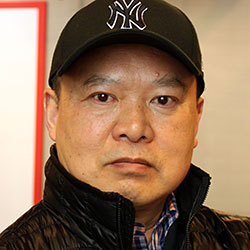
LiQin Tan
Professor of Art
ltan@rutgers.edu
Science Communication Interest: Research and Education
Research Interest: Singularity Art (Future Technological Art)
Science Communication Activities: Gave Singularity Art lectures worldwide and built a few of international Singularity Art research programs.
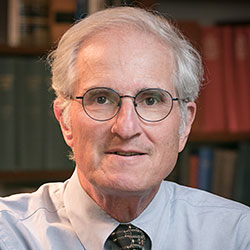
John Weingart
Associate Director
john.weingart@rutgers.edu
Science Communication Interest: Considerations of risk communication and public participation in setting public policy
Research Interest: What changes are needed to lead more smart, public-spirited young people into jobs and possibly careers working in government?
Science Communication Activities:
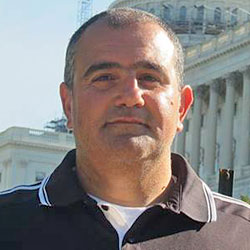
Itzhak Yanovitzky
Professor
itzhak@comminfo.rutgers.edu
Science Communication Interest: Research, education, and outreach.
Research Interest: Yanovitzky’s applied research program explores communication processes and mechanisms that can support evidence-informed decision-making at the individual and community levels. A major thrust of this work involves designing and testing behavioral and structural (or environmental) interventions that bridge the gap between research-based knowledge and the adoption of sound policies and practices. Some of these interventions seek to increase decision-maker motivation to use or consider relevant insights from research when making decisions (for example, via persuasion or marketing applications); others aim to build decision-maker capacity to do so (for example, by improving their access to relevant, timely, and interpretable research evidence). A complementary line of research involves collaborations with health practitioners and community-serving organizations to identify and broadly disseminate best practices and effective strategies for coping with major health challenges such as opioid addiction and adolescent depression that practitioners and advocates themselves conceive and implement. Such two-way research-practice partnerships can effectively produce sound (or evidence-informed) responses to major public health challenges and emergencies and improve the preparedness and resilience of affected communities.
Science Communication Activities: Dr. Yanovitzky is routinely being asked to serve as a scientific expert to consult on topics ranging from preventing alcohol, drug, tobacco, and cancer to improving engagement with patients and coordination among health stakeholders. He is a member of the National Academies of Science, Engineering, and Medicine’s Standing Committee on Advancing Science Communication Research and Practice.
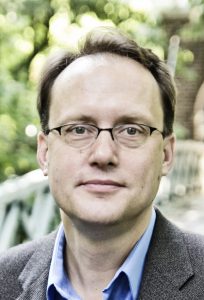 Lee Cronk
Lee Cronk
Professor in Anthropology
leecronk@rutgers.edu
Science Communication Interest: Educating the public about the things that foster and stymie cooperation so that cooperative efforts are more likely to succeed.
Research Interest: Cooperation among humans and in the many other domains in which it occurs. My main recent effort to communicate science to the public is my work as a consultant to San Francisco’s Exploratorium Museum regarding the design of interactive displays on cooperation. My main recent effort to communicate science to the public is my work as a consultant to San Francisco’s Exploratorium Museum regarding the design of interactive displays on cooperation.
Shuchismita Dutta
Scientific Educational Development Lead for RCSB Protein Data Bank; Associate Research Professorshuchi.dutta@rcsb.org
Science Communication Interest: Promoting a molecular view of biology and medicine
Research Interest: Biomolecular visualization and analysis; understanding the needs of different communities related to visualization, analysis, and exploration of molecular structural data. Interdisciplinary Honors Seminar; developing materials for PDB-101 (http://pdb101.rcsb.org/); Community Education
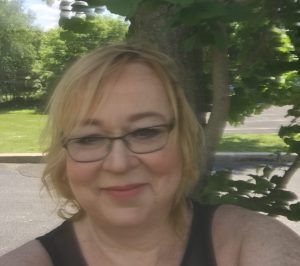 Kitta MacPherson
Kitta MacPherson
Science JournalistJ in Journalism and Media Studies
kittamac@gmail.com
Science Communication Interest: I am an award-winning science writer and have communicated the complex research breakthroughs of scientists at Rutgers and other leading institutions in mass media outlets for several decades. I work to lessen the gulf between how researchers view the world and how the public understands it. I believe members of the public are deeply intelligent and can grasp anything properly if it is conveyed to them.
Research Interest: I want to attack the “misunderstanding gulf” from both sides. I am working to develop an effective template to guide researchers when communicating their work and create a collection of “primers” for the public on common scientific, medical, and technical ideas. As an adjunct faculty member at Rutgers, I have taught many courses, including science and medical writing and the art of personal essays. I research communications seminars and write and speak publicly about science and science writing.
Xingming Wang
Ph.D. student in comparative literature
wangxingming0521@gmail.com
Science Communication Interest: yet to be fufilled
Research Interest:
Richard Ludescher
Professor in Food Science
rdl@sebs.rutgers.edu
Science Communication Interest: Education and Outreach
Research Interest: Biophysics of foods and food systems, especially of the solid state. Development of novel optical luminescent sensors of food quality and stability using edible chromophores routinely added to or naturally found in foods. Education and outreach for undergraduate and graduate students within and beyond the classroom. Preparation of textbooks for science education (two in preparation.) Outreach to the larger community on specific food and food technology issues.
Brian McGonigle
SEBS/NJAES Manager of Alumni and Community Engagement
brian.mcgonigle@rutgers.edu
Science Communication Interest: Outreach
Research Interest: Non-specific and help promote events that communicate scientific research
Jessica L. Hamilton
Assistant Professor in Psychology
jessica.hamilton@rutgers.edu
Science Communication Interest: I want to improve clinical science communication through education and outreach, including social media and community events. I am also interested in training graduate and undergraduate students in clinical science communication. Clinical Science Communication Training Initiative (anticipated for 2021- 2022)
Research Interest: My research focuses on identifying modifiable risk and resilience factors for adolescent suicidal thoughts and behaviors, specifically focused on the role of sleep and social media. I am also passionate about increasing the accessibility of resources and opportunities to students to improve equity in our research and, more broadly, in the field of psychology.
Website: thehamiltonlab.org
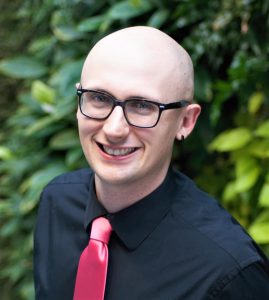 Geb Bastian
Geb Bastian
Ph.D. Candidate in Nutritional Sciences
g.e.bastian@rutgers.edu
Science Communication Interest: Extension, nutrition education
Research Interest: Nutrition education, program evaluation, health promotion. I have expanded the Food and Nutrition Education Program.
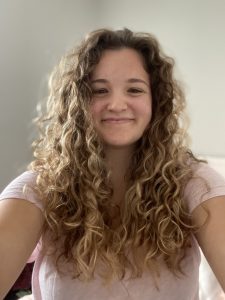 Anissa Speakman
Anissa Speakman
Graduate Student in Anthropology
Anissa.Speakman94@gmail.com
Science Communication Interest: Education and Outreach
Research Interest: Primatology, Conservation, Reproductive Ecology, Sexual Selection. Communicating Science, Skype-A-Scientist
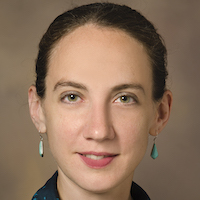 Gretchen Stahlman
Gretchen Stahlman
Assistant Professor in Library & Information Science
gretchen.stahlman@rutgers.edu
Science Communication Interest: Synergies between curation and communication of scientific information as it passes through various knowledge contexts
Research Interest: Digital curation; information behavior; long-term management of science data; scholarly communication. Network for Earth-space Research, Education & Innovation with Data (NEREID).
Rebecca Cypess
Associate Dean for Academic Affairs in the Mason Gross School of the Arts
rcypess@mgsa.rutgers.edu
Science Communication Interest: research, pedagogy
Research Interest: As an administrator, I seek to foster arts-integrated research and pedagogy across the university, creating connections between the arts and health, arts and environmental science, arts and social justice, and many others. I am a musicologist and historical keyboardist whose work includes science and technology in music history and the history of women in music, music in Jewish culture, and historical performance practices.
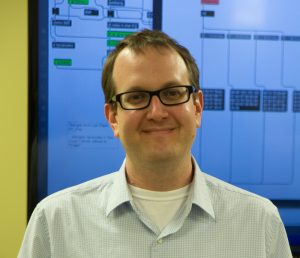 Steven Kemper
Steven Kemper
Associate Professor of Music Technology and Composition; Director, Department of Music
skemper@mgsa.rutgers.edu
Science Communication Interest: Data Sonification
Research Interest: Musical Robotics, Making Music with Sensors, Composition, Musical Expression
Jacqueline Thaw
Assistant Professor in the Division of Life Sciences
thaw@mgsa.rutgers.edu
Science Communication Interest: Undergraduate Curriculum Development and Career Planning
Courses: Honors Communication in Biology (01:119:410), Career Exploration in Arts and Sciences -Medicine and Life Sciences/Biology (01:090:210)
Anne Carr-Schmid
Associate Professor and Director, MFA in Design
schmid@dls.rutgers.edu
Science Communication Interest: Visual Communication and Design
Research Interest: The general public’s understanding of science and politics, how that understanding is affected by media